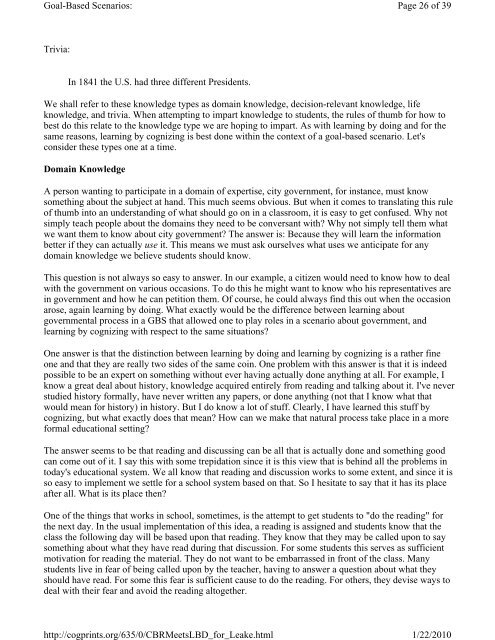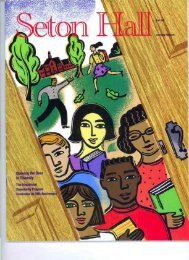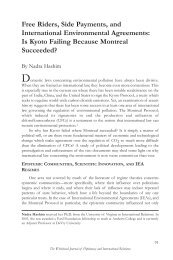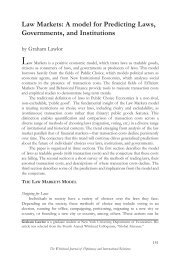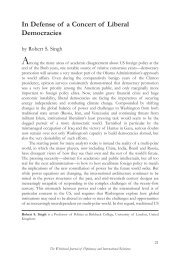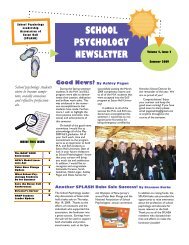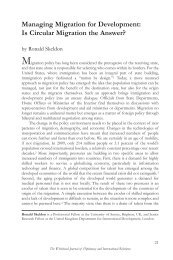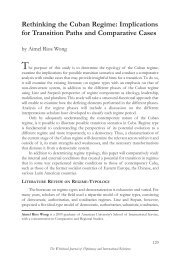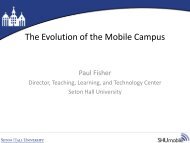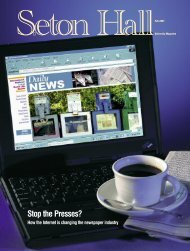Case-Based Reasoning Meets Learning by Doing
Case-Based Reasoning Meets Learning by Doing
Case-Based Reasoning Meets Learning by Doing
You also want an ePaper? Increase the reach of your titles
YUMPU automatically turns print PDFs into web optimized ePapers that Google loves.
Goal-<strong>Based</strong> Scenarios:<br />
Trivia:<br />
In 1841 the U.S. had three different Presidents.<br />
We shall refer to these knowledge types as domain knowledge, decision-relevant knowledge, life<br />
knowledge, and trivia. When attempting to impart knowledge to students, the rules of thumb for how to<br />
best do this relate to the knowledge type we are hoping to impart. As with learning <strong>by</strong> doing and for the<br />
same reasons, learning <strong>by</strong> cognizing is best done within the context of a goal-based scenario. Let's<br />
consider these types one at a time.<br />
Domain Knowledge<br />
Page 26 of 39<br />
A person wanting to participate in a domain of expertise, city government, for instance, must know<br />
something about the subject at hand. This much seems obvious. But when it comes to translating this rule<br />
of thumb into an understanding of what should go on in a classroom, it is easy to get confused. Why not<br />
simply teach people about the domains they need to be conversant with? Why not simply tell them what<br />
we want them to know about city government? The answer is: Because they will learn the information<br />
better if they can actually use it. This means we must ask ourselves what uses we anticipate for any<br />
domain knowledge we believe students should know.<br />
This question is not always so easy to answer. In our example, a citizen would need to know how to deal<br />
with the government on various occasions. To do this he might want to know who his representatives are<br />
in government and how he can petition them. Of course, he could always find this out when the occasion<br />
arose, again learning <strong>by</strong> doing. What exactly would be the difference between learning about<br />
governmental process in a GBS that allowed one to play roles in a scenario about government, and<br />
learning <strong>by</strong> cognizing with respect to the same situations?<br />
One answer is that the distinction between learning <strong>by</strong> doing and learning <strong>by</strong> cognizing is a rather fine<br />
one and that they are really two sides of the same coin. One problem with this answer is that it is indeed<br />
possible to be an expert on something without ever having actually done anything at all. For example, I<br />
know a great deal about history, knowledge acquired entirely from reading and talking about it. I've never<br />
studied history formally, have never written any papers, or done anything (not that I know what that<br />
would mean for history) in history. But I do know a lot of stuff. Clearly, I have learned this stuff <strong>by</strong><br />
cognizing, but what exactly does that mean? How can we make that natural process take place in a more<br />
formal educational setting?<br />
The answer seems to be that reading and discussing can be all that is actually done and something good<br />
can come out of it. I say this with some trepidation since it is this view that is behind all the problems in<br />
today's educational system. We all know that reading and discussion works to some extent, and since it is<br />
so easy to implement we settle for a school system based on that. So I hesitate to say that it has its place<br />
after all. What is its place then?<br />
One of the things that works in school, sometimes, is the attempt to get students to "do the reading" for<br />
the next day. In the usual implementation of this idea, a reading is assigned and students know that the<br />
class the following day will be based upon that reading. They know that they may be called upon to say<br />
something about what they have read during that discussion. For some students this serves as sufficient<br />
motivation for reading the material. They do not want to be embarrassed in front of the class. Many<br />
students live in fear of being called upon <strong>by</strong> the teacher, having to answer a question about what they<br />
should have read. For some this fear is sufficient cause to do the reading. For others, they devise ways to<br />
deal with their fear and avoid the reading altogether.<br />
http://cogprints.org/635/0/CBR<strong>Meets</strong>LBD_for_Leake.html<br />
1/22/2010


